| Article Overview:
Terrorism freezes images in the mind. The Beast of Terror
embosses horrible images on the mind that can only be erased with
Vigilance. What pictures did you freeze? How will
you erase them? Find out. |
 VigilanceVoice VigilanceVoice
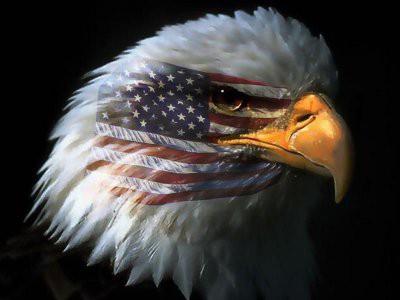
www.VigilanceVoice.com
Sunday--April
13, 2003—Ground Zero Plus 578
___________________________________________________________
Frozen Moments Of Terrorism
___________________________________________________________
by
Cliff McKenzie
Editor, New York City Combat Correspondent News
|
GROUND ZERO, New York City, Apr. 13--Terrorism leaves in its wake
frozen moments. It petrifies the worst of human nature.
It locks forever in the mind the horror of war, the ugliness of
brutality, the savagery of inhumanity.
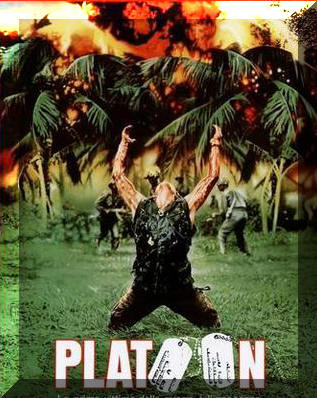 |
I experienced some of those frozen
moments again last night when I watched Oliver Stone's movie
Platoon. To me, the movie is one of the most graphic
and realistic representations of the horror of war. Each time I
see it forces me to revisit numerous portraits of horror--faces
of women and children turned into victims of war. It symbolizes
the brutal unleashing of the Beast of Terror from within the Heart of
Human Darkness, a suppository that Joseph Conrad wrote so eloquently
about that exists in the bowels of human nature--a thin line where
civilization ends and the jungles of the Beast begins, where morality
stops and immorality marches forward, a fragile zone where the fences
of civilization turn from white to black and the consequences of one's
actions have no checkpoints except within one's mind.
It is that innominate zone
where man and woman becomes either God or the Devil, saint or sinner,
Sentinel of Vigilance or Beast of Terror.
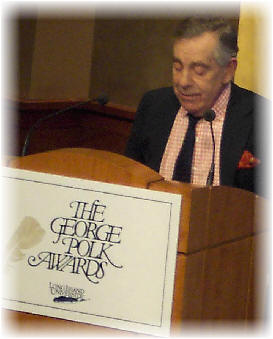 |
|
Morley Safer
reminded me about the "Frozen Moments of Terrorism" |
The Iraqi war, no different than any other war ever fought on the face
of earth, is but one more example of the portrait of human
degradation, human depreciation of all its civility, an eraser of all
its progress over millions of years of human evolution.
I was reminded about the
"Frozen Moments of Terrorism" a couple of nights ago when I attended a
seminar at HBO headquarters where Morley Safer, co-editor of CBS's 60
minutes, was receiving the George Polk Lifetime Award, one of most
respected kudos given to journalists.
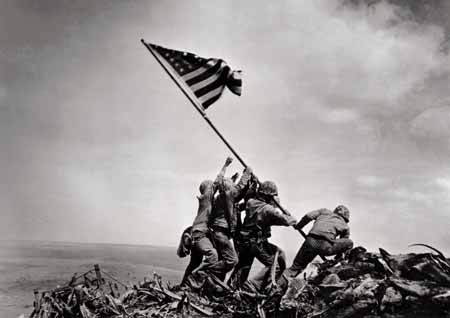 |
|
American flag
raising at Iwo Jima |
Mr. Safer was asked about the difference between television reporting
and photo journalism, and asked why a photograph such as the raising
of the American flag on Mt.
Suribachi during WWII, or a photo of the toppling of Saddam Hussein's
stature had more clout than a television sound bite.
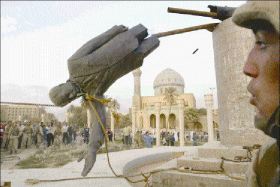 |
|
Saddam's
statue toppling |
"The difference," he said, "is that a
photo freezes a moment in time. It captures everything in
one frame. It locks history in a moment."
In Vietnam, I took thousands of
pictures with my Nikonos, an underwater camera I purchased before
going over that allowed me to take photos in any kind of weather, and
because of its rugged structure, could withstand the brutality of
combat.
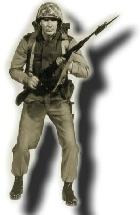 |
|
Cliff
McKenzie, U.S. Marine Combat Correspondent |
As a U.S. Marine Combat
Correspondent, I first shot with my rifle or .45 pistol, and then, as
the smoke cleared, shot pictures of the aftermath. I had
two fingers on two triggers, one on my weapon and the other on my
camera. I captured the horror of war in my gun sights as
well as in the frame of my camera.
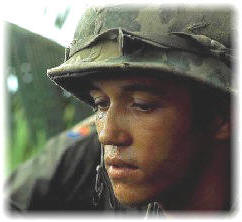 |
|
Vietnam War
frozen moment of GI crying |
I think of war in terms of the
camera lens.
Even though I was an expert
marksman, when I sighted down the barrel of my rifle I was looking at
the target as a photo. By nature, I'm a journalist.
I see everything as a story. The world is sliced into
fragments rather than wholes. Everything is a combination of
pieces that, when put together, becomes a whole.
When I see pictures of war, I
see frozen moments. I don't see the sound bites or
the flow of one frame of televised images blending into another frame,
rushing by one after another. I freeze frame images.
I take pictures of events. I hold them in a portfolio in my
mind, often against my will, studying them, measuring them, haunted by
them.
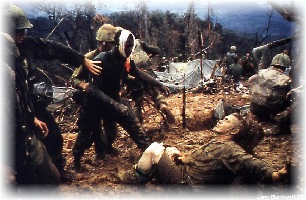 |
|
Vietnam War
frozen moment of wounded |
Platoon reminded
me of countless faces I had seen of civilians ripped by the horror of
war, of young Marines turned into Beasts of Death, faces grimaced by
the pain of seeing their own buddies killed and taking out vengeance
against the Vietnamese--sometimes justified, sometimes but a surge of
vengeance to compensate for their suffering.
Now I am seeing the Frozen
Faces Of Terror replayed on the television. The networks
are recycling their news of the war, running old feeds to refresh the
thirst of viewers to sit in their armchairs and watch the destruction
of human life.
I think about the Frozen Faces.
In my war, I see them. They stare at me with blank looks,
empty, vacuous stares as though their souls were empty, drained of any
emotion. Some didn't blink when they looked down the
barrel of a M-14. They just sat there, staring blindly in
the stoicism of a people who had been at war for more than 300 years,
ten generations of brutality passed on from great-great-great
grandparents downline to the child who stared up waiting for the
bullet with no flinch, no blink of an eye.
I thought about the Iraqi
people.
They were suffering war's
aftermath.
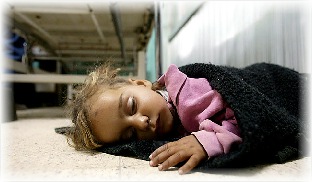 |
|
There were
still beds to be found in the hospitals ...... |
There was still the scent of
decaying flesh rising from the corpses buried in the rubble.
There were still bodies to be buried. There were still
fresh wounds that needed dressing. There were still bullets
being loaded into sniper's weapons, and a few suicide bombers waiting
for their last hurrah, their final chance to be rocketed to Paradise.
I thought about the jubilation
in Israel over the fact that Saddam Hussein would no longer pay
suicide bombers $25,000 for killing others. No longer would the
bounty on death be paid. No longer would the Beast of Terror
feed the Baby Beasts with money for their families if they blew
themselves up and others in an attempt to fuel more destruction.
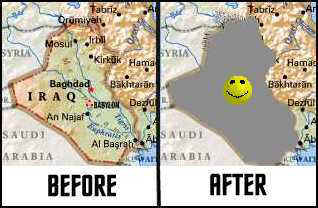 |
|
Iraqis have
been given the right to extol the virtues of "freedom" - they can
celebrate - they can protest |
I watched MSNBC showing the
Iraqi people outside the Palestine Hotel demonstrating against
American occupation, upset that electricity was out, water didn't flow
into their city, and looters were ravishing the community.
I listened to the commentators lauding the fact Iraqi's could protest
without fear of being shot. They extolled the virtues of
"freedom."
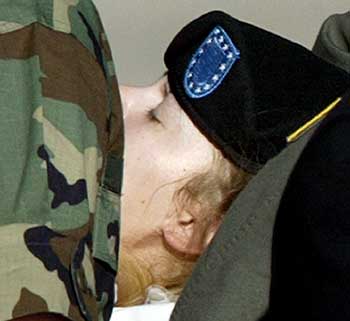 |
|
Jessica
Lynch's return to the U.S. being taken to the Walter Read Army
Medical Center in Washington, D.C. |
I saw Jessica Lynch returning to the
U.S. They carried her on a stretcher. Her head was
visible, with her Army beret placed perfectly on her blonde hair.
I had read a story about how women rights groups, once vociferously
against the war, were now cheering Jessica, their newest hero, and
hoping she had "wasted" the enemy who tortured and beat her.
I thought of my grandchildren,
sheltered from the war and its violence. They knew little
of the death and destruction. They weren't aware the Beast of
Terror was being put back on the shelf, canned, vacuum sealed for the
moment as the war in Iraq came to a close.
In the aftermath would rise the
frozen moments.
Pictures would immortalize the war.
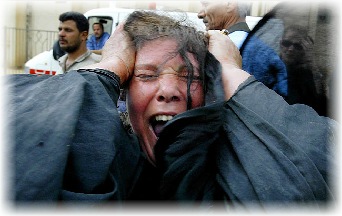 |
|
Frozen Moment
of Iraqi mother screaming |
Still photos would capture the face
of a mother crying over the body of her child.
A shot of an Iraqi child kissing an
American Marine on the day of liberation would nearly rival the photo
on VE day of the woman kissing the sailor in Times Square.
The tearing down of Saddam's statue
would be juxtaposed against Joe Rosenthal's flag raising shot on Iwo
Jima.
There would be guts and glory
pictures, photos of liberation and photos of inhumanity.
The picture album would include the
shots of American POW's being tortured, and of their dead bodies
laying in pools of blood on a dirty floor.
Pictures of children and civilians
with horrible wounds and fragments of their body left in tact would be
spread on the posters of anti-war posters, to be used for the next
rallies against the next war.
And, I would only see the faces of my
own war.
I would not relate to those of the
Iraqis.
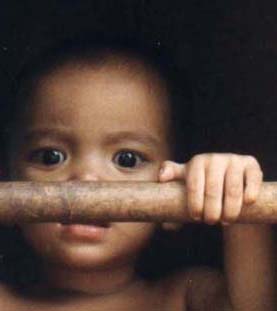 |
|
Frozen moment
of scared Vietnamese child |
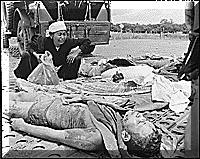 |
|
Frozen moment
of Vietnamese woman crying over the dead |
I would see the faces of the Vietnamese.
The people in the villages frozen in my mind.
I would also see the figures of those who leapt
from the World Trade Center as I stood looking up at the burning
buildings on September 11, my eyes seared with the images yet vacant,
my heart stopped as body after body plummeted down.
I would see the frozen faces of the
people next to me when the buildings began to collapse, and hear their
screams--"We're all going to die!"--and remember the choking moment
when the fists of destruction roiled toward us as millions of pounds
of concrete smashed to the earth, crushing 3,000 bodies--men and
women, innocent bystanders, caught in the web of war.
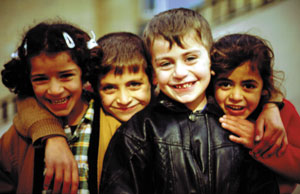
|
|
Iraqi children
with thawed and smiling faces |
Yes, I will always see the Frozen Faces of the Beast of
Terror.
But, I will remember
that the faces can be thawed.
By taking the Pledge of Vigilance, by vowing to fight
the Beast of Terror, I can believe that Terrorism will
one day no longer freeze the faces of the innocent into
death masks.
I can believe one
day the world can smile rather than sneer--it will be
the day that Vigilance overpowers Terrorism.

April
12--The Day Terrorism Died
©2001
- 2004, VigilanceVoice.com, All rights reserved -
a ((HYYPE))
design

|
|
|